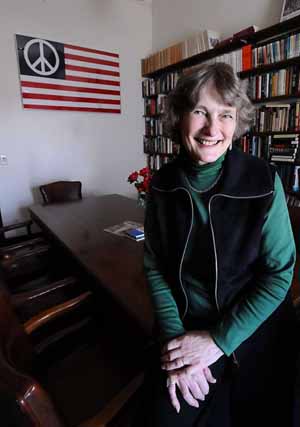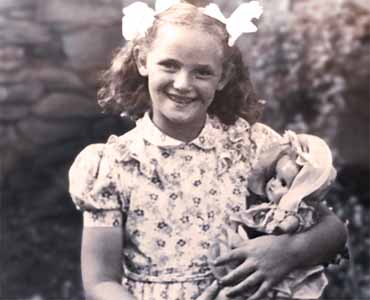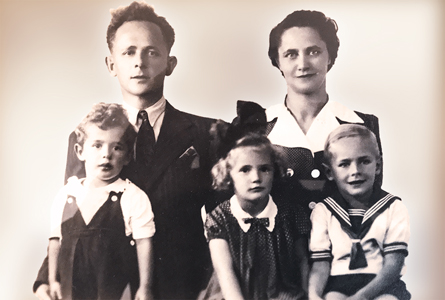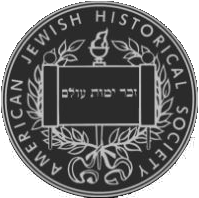This interview, first published in “Jewish Social Studies: History, Culture, Society n.s. 24, no. 2 (Winter 2019)” details historian Alice Kessler-Harris’s upbringing as a child of World War II refugees and how she first became interested in her Jewish heritage and the topic of gender studies. By Tony Michels, Lara Vapnek, and Annie Polland.

Alice Kessler-Harris is a towering figure in the fields of women’s history and labor history, in which she has played a leading role since the 1970s. Over the course of her long and influential career, Kessler-Harris has published numerous articles and books that explore the interplay of gender, class, and social policy. Her book Out to Work: A History of Wage-Earning Women in the United States (1982, 2003) is widely regarded as a classic. Kessler-Harris continued to explore the nuances of women’s experiences in the workforce in books such as A Woman’s Wage: Historical Meanings and Social Consequences (1990, 2015) and Gendering Labor History (2007).
Kessler-Harris’s investigation of women’s work led her to examine how ideas about gender shaped social welfare, a subject that she explored in greatest detail in her 2001 book, In Pursuit of Equity: Women, Men and the Quest for Economic Citizenship in Twentieth Century America. Her most recent book, A Difficult Woman: The Challenging Life and Times of Lillian Hellman (2012), used the life of the controversial playwright to examine the cultural politics of the twentieth-century United States and to consider the relationship between history and memory. Kessler-Harris is currently the R. Gordon Hoxie Professor Emerita of American History at Columbia University and Professor Emerita in the Institute for Research on Women and Gender. Kessler-Harris has had a significant impact on public history as well.
While researching her dissertation, Kessler-Harris discovered the fiction of Anzia Yezierska, an Eastern European Jewish immigrant writer who found great acclaim in the 1920s but whose work had fallen into obscurity. Convinced Yezierska’s work was important historically but also resonant for contemporary audiences, Kessler-Harris devoted herself to finding a new publisher in the 1970s and thus introduced hundreds of thousands of new readers to Yezierska’s work, now a staple of both academic courses and also English Language Learners courses. In 2016, Kessler-Harris worked with Columbia University and the New York Historical Society to have her first book, Women Have Always Worked, become the basis of a massive open online course (MOOC).

In addition to her impressive list of publications, Kessler-Harris is known as a generous mentor and a leader in the historical profession. As a faculty member at Rutgers and Columbia, Kessler-Harris took an active role in educating graduate students and in supporting them as they pursued a variety of career paths. Among her many professional activities, Kessler-Harris pushed for greater inclusion within the historical profession by working to establish the Coordinating Council of Women in the Historical Profession (CCWHP) and serving as chair of the American Historical Association’s Committee on the Status of Women. She has also served as president of the American Studies Association (1992–93), the Labor and Working Class History Association (LAWCHA, 2008–10), and the Organization of American Historians (2011–12).

The editors of Jewish Social Studies wanted to interview Kessler-Harris as someone who did influential work on Jewish women and Jewish workers early in her career, but did not choose to focus on Jews as her primary subject. We thought it would be interesting and valuable to hear her thoughts about Jewish history as a field and how her own experiences led her to an early interest in Jews but also led in other directions.

